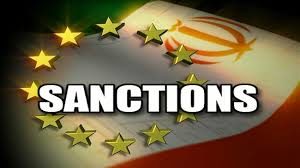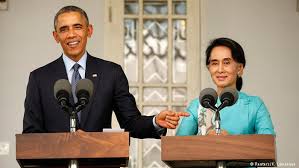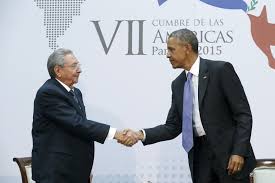Sanctions Updates: Iran, Myanmar (Burma) and Cuba
 With the rise of OFAC Sanctions enforcement and compliance issues, companies have to devote significant resources to following changes in OFAC Sanctions.
With the rise of OFAC Sanctions enforcement and compliance issues, companies have to devote significant resources to following changes in OFAC Sanctions.
Over the last few years, the US government has significantly altered the sanctions landscape with the Iran Nuclear Treaty, and major changes in its relationship with Cuba and Myanmar (Burma). Since the major changes have been announced or implemented, there have been continuing tweaks and changes to the separate sanctions programs. Here is a summary of some of the more significant changes in recent months.
Iran Sanctions: On June 8, 2016, OFAC updated its list of Frequently Asked Questions (FAQs) to provide additional guidance on foreign entities that are owned or controlled by US persons and the modification of financial and banking sanctions. (Here)
The Iran Transactions and Sanctions Regulations (“ITSR” Here) and General License H (“Authorizing Transactions Relating to Foreign Entities Owned or Controlled by a United States Person” Here) apply to foreign entities owned or controlled by a US person. The ITSR and General License H apply to foreign entities owned or controlled by one or more US persons if: (1) the aggregate equity interests of one or more US persons is 50 percent or more; or (2) one or more US persons control a majority of seats on the board of directors.
Additionally, a foreign entity may also be subject to the ITSR if one or more US persons, in the aggregate, otherwise control(s) the major decisions of the foreign entity.
OFAC also confirmed that third-country (e.g. secondary) entities may engage in Iran-related transactions even if US persons serve in senior positions (e.g. CEO, CFO, COO, director) in such foreign entities. Senior US persons would have to be walled off or fenced off from Iran-related business. OFAC suggested that such foreign entities adopt a recusal policy for prohibiting US persons from engaging in otherwise prohibited transactions with Iran.
With respect to US parent companies that own or control foreign entities engaged in Iran-related transactions under General License H, OFAC clarified that the parent company and its board members, senior management and employees may continue to be involved in the foreign entity’s day-to-day operations related to non-sanctioned jurisdictions. US persons may receive reports from foreign entities that include details on transactions with Iran pursuant to General License H. However, US persons may not attempt to influence or otherwise facilitate Iran-related business decisions or transactions of such foreign entities based on reports received.
OFAC also reiterated earlier guidance to financial institutions that they may transact business with non-US, non-Iranian financial institutions that conduct business with Iranian financial institutions that do not involve any institutions or individuals listed on OFAC’s Specially Designated Nationals and Blocked Persons List (“SDNs”).
In addition, third-country financial institutions may conduct business with both Iranian and US financial institutions so long as such business is separate from each other. In other words, third-country financial institutions may not route Iran-related transactions through US financial institutions or in any other way involve US persons in Iran-related transactions.
Myanmar (Burma) Sanctions: On May 17, 2016, OFAC amended the Burmese Sanctions Regulations and updated the Specially Designated Nationals and Blocked Persons (SDN) List. (Here)
The new regulations were intended to support trade with Burma; facilitate the movement of goods within Burma; allow certain transactions by US individuals in Burma; and authorize most transactions involving financial institutions. OFAC added some companies to the SDN List that are owned or controlled by Steven Law or Asia World Co., Ltd. OFAC’s changes were designed to promote the Obama Administration’s support for continued political reforms in Burma.
Cuba Sanctions: On March 15, 2016, OFAC and the US Commerce Department’s Bureau of Industry and Security (“BIS”) announced further amendments to the Cuban Assets Control Regulations and Export Administration Regulations. (Here and Here). The most significant changes authorized: (1) self-directed “people-to-people” travel to Cuba while official tourism remains prohibited; (2) additional categories of persons to establish business and/or physical presence in Cuba; and (3) opening up of certain financial transactions. Despite these new authorizations, the US statutory embargo against Cuba remains in place and prohibits many Cuba-related transactions.
 Under the new regulations, persons are now authorized to travel to Cuba to engage in people-to-people educational activities in their personal capacities rather than being restricted to travel udner the auspices of a sponsoring organization.
Under the new regulations, persons are now authorized to travel to Cuba to engage in people-to-people educational activities in their personal capacities rather than being restricted to travel udner the auspices of a sponsoring organization.
OFAC also has expanded the categories of persons authorized to establish a “business presence” in Cuba to include news bureaus, exporters of authorized goods; entities that provide mail or parcel transmission services; cargo transportation; providers of telecommunications services; and providers of authorized travel and carrier services.















